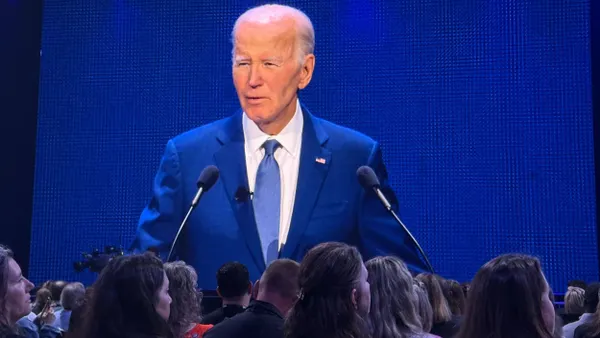Dive Brief:
- A survey recently released by the Center for Popular Democracy found that Starbucks has “fallen short” of its promise to provide more sustainable scheduling practices, including providing schedules in advance and the end of “clopening” – working a closing shift one day and then an opening shift the next.
- A Starbucks spokeswoman told the New York Times that all baristas across all stores should be receiving their schedules at least 10 days in advance, and that the findings of the survey “don’t line up" with what they'd seen.
- As more attention has been called to work-life balance for retailers and other minimum-wage workplaces, multiple companies have announced their intent to reduce on-call scheduling. These changes don’t come without shifting labor costs, however.
Dive Insight:
The issue, according to both the Center and the Times, is that managers at stores are expected to keep labor costs very low while also bearing the brunt of adapting to these new practices. These expectations lead to managers opting to understaff rather than risk getting written up for overstaffing, the Times reports. Scheduling in this manner, especially at times of peak business, create stressful environments that lead to high turnover and poor training.
“We’re the first to admit we have work to do,” Jaime Riley, a company spokesperson, told the Times. “But we feel like we’ve made good progress, and that doesn’t align with what we’re seeing.”
Some solutions – for Starbucks and for other companies with staffing issues – may be in the pipeline, however.
“One of the most promising is to create a mini work force of floating relief employees who call a central headquarters each morning, as the QuikTrip chain of convenience stores common in parts of the Midwest and South has done,” the Times reports. “Because store operations are standardized, relief employees can step in seamlessly.”












